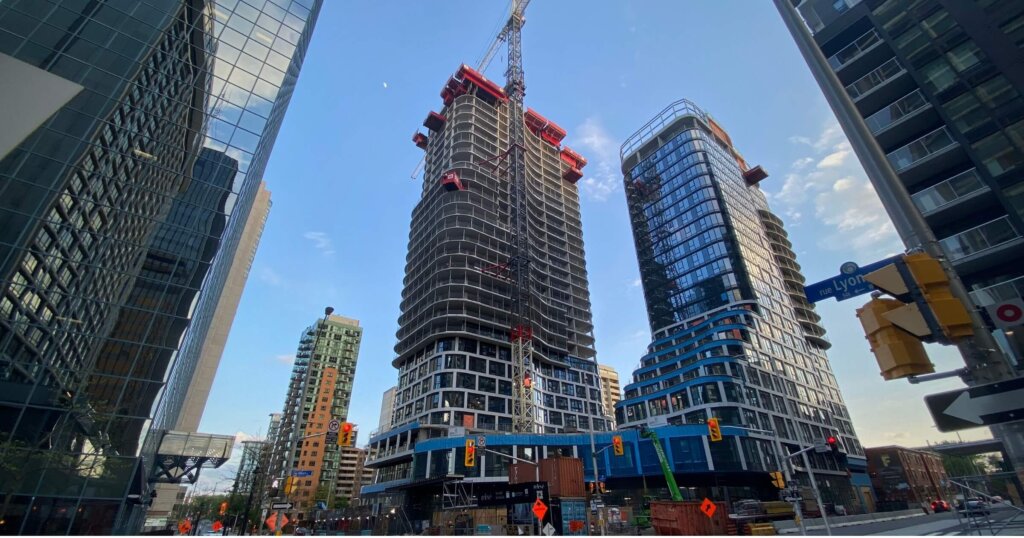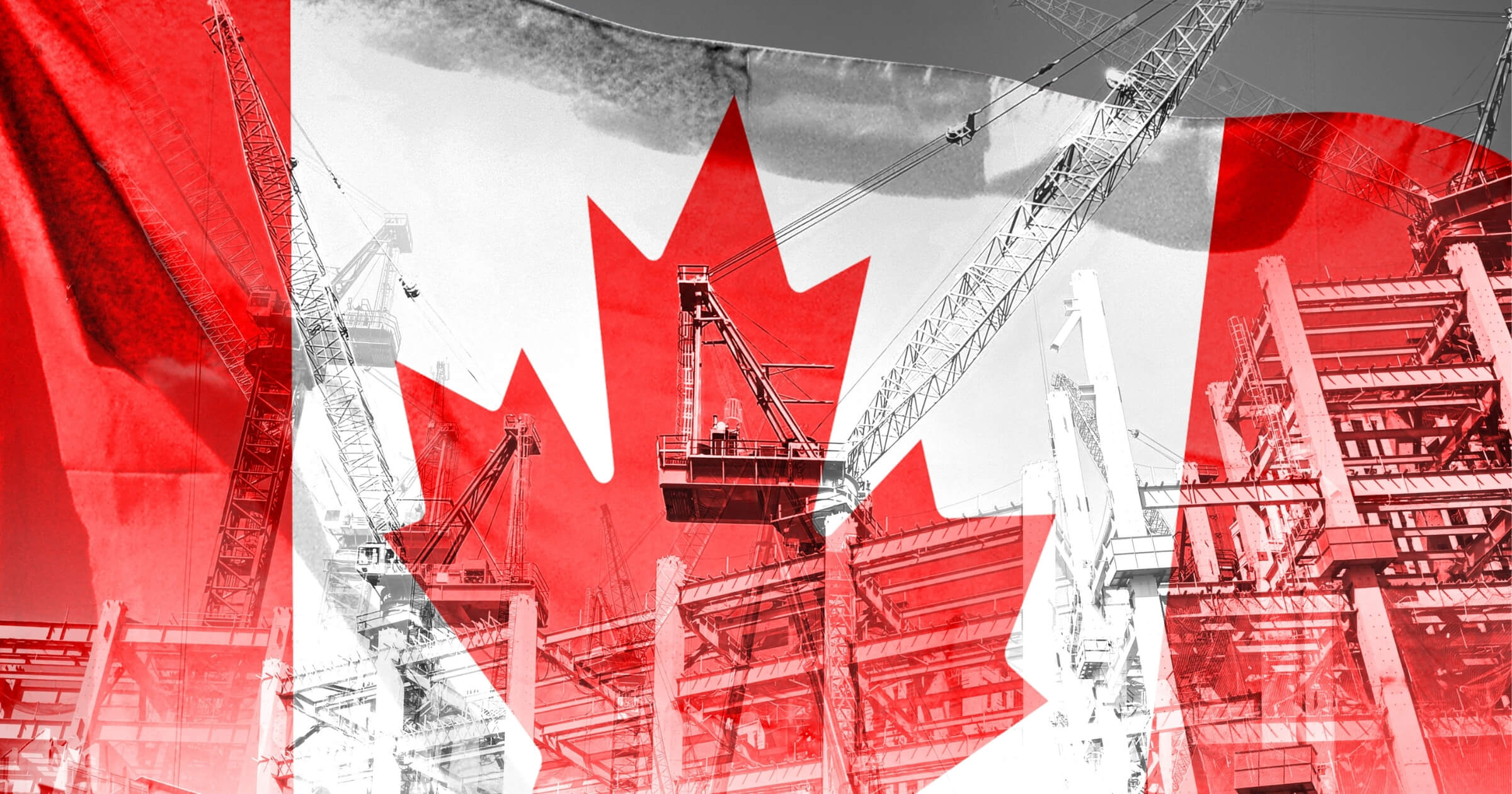
Image sourced from Shutterstock
Mark Carney’s Liberal government has laid out ambitious plans for affordable housing, infrastructure development, labor dynamics, and green building initiatives. If everything goes according to plan, the construction industry could be poised for big change.
Top construction sectors targeted by Mark Carney’s Liberals
Housing
The Liberals have pledged to double the pace of new home construction over the next decade, aiming for nearly 500,000 units annually. This includes building on public lands and providing over $25 billion in financing to innovative prefabricated home builders. First-time homebuyers stand to benefit from the elimination of the Goods and Services Tax (GST) on properties priced at or under one million, potentially saving up to $50,000 on such purchases.
Mark Carney also advocates for densification over urban sprawl, proposing the removal of unit maxima and parking minima and allowing taller buildings near transit lines to increase housing supply.
Infrastructure
The Liberals plan to establish a Major Federal Project Office to expedite decisions on significant infrastructure projects, cutting approval timelines from five years to just two. “We can’t build Canada into an energy superpower if we can’t actually get the shovels into the ground,” Carney said at an ironworkers’ union office in Calgary. “To put it plainly, we need to get going.”
Their platform includes over $130 billion in new spending, with a major focus on Arctic infrastructure ($6.7 billion), energy sovereignty, and high-speed rail. Notable projects include funding for over-the-horizon radar systems, upgrades to military and civilian infrastructure in Nunavut, and $3.9 billion to launch “Alto,” a high-speed rail network linking Toronto to Quebec City. Additionally, a new $5 billion Trade Diversification Corridor Fund aims to support critical infrastructure like the Cedar LNG facility and the Churchill port revival.
Labor
A significant part of Mark Carney’s agenda will focus on workforce development to address labor shortages. Liberals plan to invest heavily in career stability by expanding access to upskilling and training, particularly for workers in mid-career transitions. The proposed benefit would offer up to $15,000 for Canadians working in priority sectors like construction, manufacturing, healthcare, artificial intelligence, and tech. This new benefit builds on a previous pledge to make skilled trades training more accessible by covering up to $8,000 in apprenticeship costs.
Carney’s plan includes direct collaboration with businesses to support employee retention, upskill their existing workforce, and safeguard jobs at risk from global disruptions like tariffs.
Green building
Carney has long believed that tackling climate change is also smart economics. Back in 2020, he described the green transition as “the greatest commercial opportunity of our time” during an event in London, a sentiment that’s shaped much of his post-banking career.
Since leaving his central banking role, Mark Carney has focused on mobilizing private capital to drive climate action. In 2019, he took on the role of U.N. Special Envoy for Climate Action and Finance, and two years later, he helped launch the Glasgow Financial Alliance for Net Zero, a coalition of financial institutions working to accelerate the shift to a net-zero economy.
His climate convictions were first formed during his experience as governor of the Bank of England from 2013 to 2020. “When I became governor of the Bank of England, which oversees the insurance industry, I saw that the number of extreme weather events had tripled and the cost of those events had gone up five times in a quarter century,” he said in a 2021 interview with the United Nations. “These things really concentrated my mind on climate.”
The government’s goal is to decarbonize federal buildings by 2030 and replace the consumer carbon tax with incentive programs that reward green choices, such as adopting electric vehicles and energy-efficient appliances.
Canada’s Green Building Strategy supports these goals by promoting energy-efficient retrofits and sustainable materials. For example, programs like the Canada Greener Homes Grant and Loan help homeowners make eco-friendly upgrades, while the Green Municipal Fund provides financial support for municipal environmental projects.
If Mark Carney can persuade opposition parties to agree on these initiatives, the Liberal mandate could signal a transformative period for Canada’s construction industry and a sustainable, more inclusive future for its workers.
Want to stay informed on Canada’s evolving construction landscape? Subscribe to our newsletter for updates and insights into economic policy and the latest construction projects underway.


